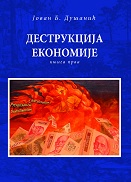| NSPM in English | |||
The Return of Germany |
 |
 |
 |
| среда, 30. септембар 2009. | |
|
(Stratfor Today, September 29, 2009)
With the conservatives now solidly in power in Berlin, some may think the United States can look forward to a much stronger bilateral relationship with Germany. But it’s a bit more complicated than that. The United States’ history of cooperation with Germany occurred almost entirely during the Cold War era — during which time, to be perfectly blunt, the Germans were not allowed an opinion in the matter. In fact, the German tradition of assigning the junior partner in a coalition government to the Foreign Ministry spot emerged precisely at the time in the Cold War when the Germans did not really have a foreign policy to speak of. The conservatives were in government in the early occupation years, and so the Left — due to both ideological preference and heavy influence from their German brothers behind the Iron Curtain — tended to be relatively anti-American. The incoming FDP does bring some hope for improvement in the recently bumpy Berlin-Washington relationship. The FDP is committed to the fight in Afghanistan and speaks on foreign policy matters in a manner much more fitting for an American ally: It is, for example, ready to push both Russia and China on human rights. Westerwelle also has set nuclear disarmament, including removal of remaining U.S. nuclear warheads from Germany, as a foreign policy priority. He likely will find U.S. President Barack Obama, who himself called for nuclear disarmament at the recent U.N. General Assembly meetings, agreeable on this issue. Obviously, some German preference for the United States in matters of security has survived the lifting of the Iron Curtain, but Germany now may have other interests it is looking to consider. For one thing, Russia controls much of the energy — oil and natural gas — that Germany’s industrial base needs to keep operating. The Americans and Russians currently are circling each other like a pair of wolves, particularly over the issues of U.S. influence in the former Soviet Union and the Iranian nuclear program, and the Germans would rather not get caught in a fight between their (traditional) security guarantor and their (current) energy guarantor. Put simply, the American game plan of using Germany as a supporting bulwark for any sort of renewed containment policy is somewhat resented in Berlin. So does this new understanding of German energy vulnerabilities, combined with a loosening of German Cold War preferences, mean that Berlin is now pro-Russian? Well, it’s a bit more complicated than that as well. Left to its own devices, Germany is naturally the dominant power of continental Europe: It has the population, location, capital, workforce and economy. Germany’s conservatives are well aware of this. In fact, one of the policies of the new government will be, at a minimum, to extend the life of the country’s nuclear power plants, and potentially to start building some new ones. Each new reactor translates directly into a reduction in oil and natural gas that Germany would need from Russia. And this not only would allow Germany to loosen Russia’s grip on its energy supplies, but perhaps even become the conduit of Russian gas to other European states itself. The planned Nordstream natural gas line, which is meant to carry Russian gas under the Baltic directly to Germany, then would no longer be an instrument of Russian power over Germany, but a means by which Berlin could distribute energy to its neighbors and earn revenue from the transit fees. The point of the discussion is this: Germany is awake. It is thinking for itself. It has its own policy preferences, its own energy preferences and its own security preferences. It already is showing signs of developing autonomy in foreign policy and energy matters, and it is very likely only a matter of time before it starts developing autonomy in security matters. This isn’t your father’s (or even your grandfather’s) Germany. This is your great-grandfather’s Germany. |
Од истог аутора
- The Nabucco West Project Comes to an End
- Remaking the Eurozone in a German Image
- Serbia: A Weimar Republic?
- NATO's Lack of a Strategic Concept
- Surveying Turkish Influence in the Western Balkans
- The Geopolitics of Turkey: Searching for More
- Kosovo – Consequences of the ICJ Opinion
- Kyrgyzstan and the Russian Resurgence
- Russia, Belarus, Kazakhstan: A Customs Deal and a Way Forward for Moscow
- Montenegro's Membership in NATO and Serbia's Position
- ЕУ: Убрзано ширење на Балкан
Остали чланци у рубрици
- Playing With Fire in Ukraine
- Kosovo as a res extra commercium and the alchemy of colonization
- The Balkans XX years after NATO aggression: the case of the Republic of Srpska – past, present and future
- Из архиве - Remarks Before the Foreign Affairs Committee of the European Parliament
- Dysfunction in the Balkans - Can the Post-Yugoslav Settlement Survive?
- Serbia’s latest would-be savior is a modernizer, a strongman - or both
- Why the Ukraine Crisis Is the West’s Fault
- The Ghosts of World War I Circle over Ukraine
- Nato's action plan in Ukraine is right out of Dr Strangelove
- Why Yanukovych Said No to Europe

.jpg)








 Germany’s general elections have swept to power a conservative coalition comprised of the Christian Democratic Union, led by Chancellor Angela Merkel, and the Free Democratic Party (FDP) led by Guido Westerwelle. From a geopolitical point of view, it will be Merkel’s party crafting Germany’s foreign policy: Even if the Free Democrats land the Foreign Ministry, they traditionally have been a single-issue party, and that issue is the economy.
Germany’s general elections have swept to power a conservative coalition comprised of the Christian Democratic Union, led by Chancellor Angela Merkel, and the Free Democratic Party (FDP) led by Guido Westerwelle. From a geopolitical point of view, it will be Merkel’s party crafting Germany’s foreign policy: Even if the Free Democrats land the Foreign Ministry, they traditionally have been a single-issue party, and that issue is the economy.












